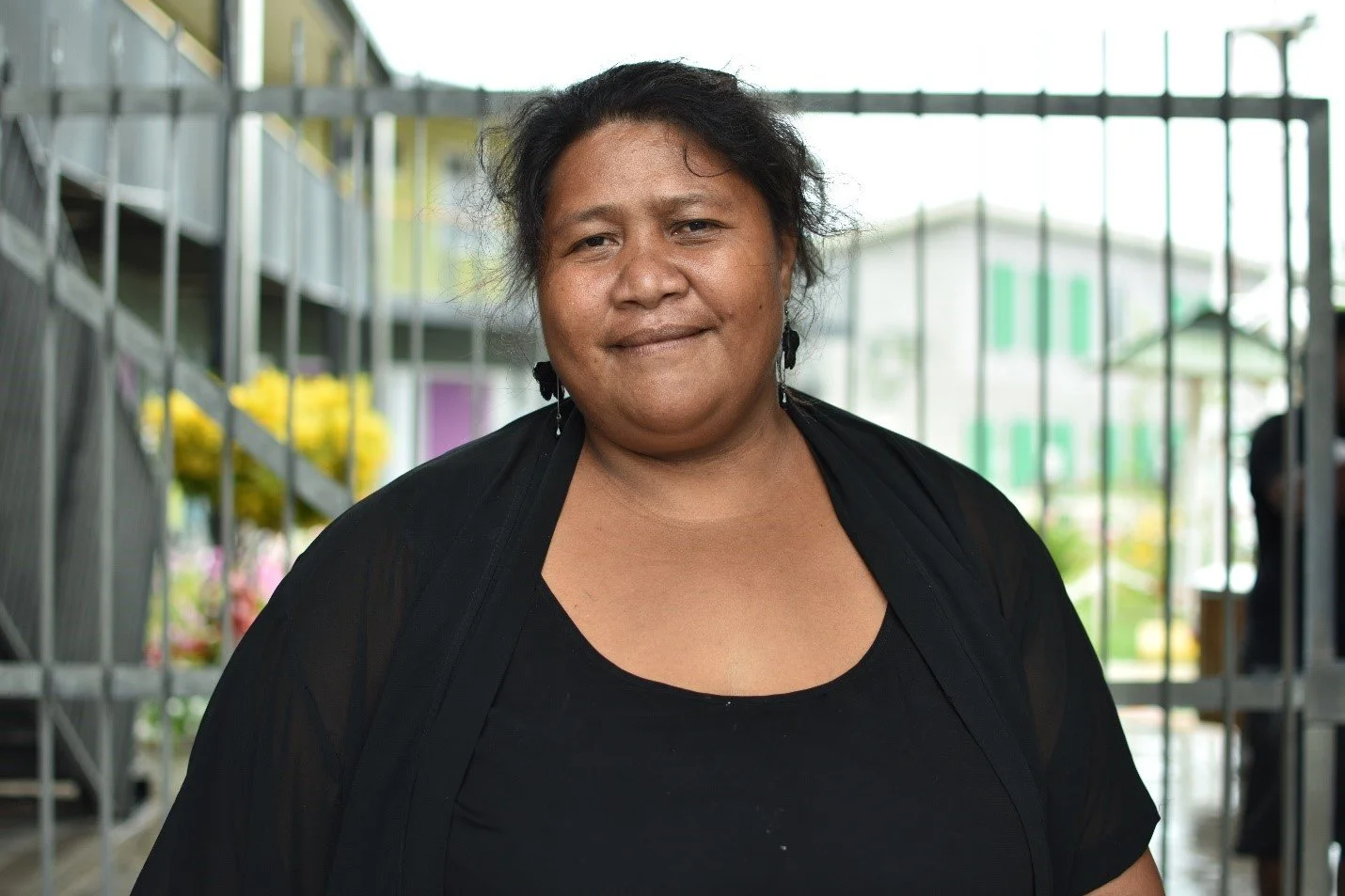Turning sunshine into clean water as Kiribati deals with drought
Above: Teaeto Kannanoia, a preschool teacher in Betio, Kiribati. Photo: ChildFund Kiribati
“Water scarcity and salinity are the two major issues that I have faced with my family while living here on Betio,” says Teaeto Kannanoia, a pre-school teacher in Kiribati.
Teaeto and her husband have four children, and she has worked as a pre-school teacher at St. Betero for more than 10 years. Betio is the largest township in the capital city of South Tarawa.
Her family are not alone in facing drinking water scarcity.
The low-lying atoll nation of Kiribati is at high risk from climate change. Limited freshwater resources, a lack of space for storage, and the threat of seawater incursion are just some of the challenges facing the country’s water supply.
Above: Teaeto assists one of her students to get a drink from the solar distillation unit. Photo: ChildFund Kiribati
All of these factors, plus the ongoing drought, mean the Public Utility Board (PUB) is only able to provide access to piped drinking water for short periods of time during the week, and only in the capital. Many households do not have access.
“We don’t have the PUB water pipe, so to get our drinking water we use our neighbor’s water on request, and we can only get two 20 litre buckets of PUB water. This is not enough for my whole family for three days before the PUB water runs again,” Teaeto said.
“Since well water is brackish on Betio, we rely only on PUB water for drinking.”
With the support of the Australian Government and in collaboration with the Australian Humanitarian Partnership (AHP), solar water distillation units are being installed at community sites in Kiribati, including preschools. The low-tech systems sustainably remove salt and bacteria from available water, using the power of the sun.
In addition to the installation of the units, the AHP response to the drought includes WASH training for preschools, household information sharing, and monitoring of drinking water.
Teaeto was excited when she heard that a solar water distillation unit would be installed at her preschool.
Water from the unit now supports the 180 children who attend the preschool, as well as 780 households in the surrounding community. The unit is looked after by the preschool teachers.
Above: Teaeto cleans the filter in the solar water distillation unit. Preschool teachers like Teaeto are taking care of the maintenance on the units. Photo: ChildFund Kiribati
“Our children here at St. Betero have water whenever they feel thirsty, and mothers no longer need to buy their children bottles of unpurified water which are sold here on Betio. All they need to do is use water from the system for drinking,” Teaeto said.
“If our PUB drinking water runs out before the PUB water is turned back on, we can go and get 10 liters of drinking water from the solar water distillation unit for my family’s drink provision for the day. And it is not just for my family, but also for all the community members who have the same water issues as us.”
Building on the clean water access, ChildFund Kiribati ran a workshop for around 30 preschool teachers, including Teaeto, and church leaders in Betio. The workshop covered positive parenting, early childhood development, and good WASH practices such as water purification and oral hygiene. Preschool teachers were also trained on how to undertake basic maintenance on the solar unit, and to monitor water use.
Teaeto says that she hopes other children receive the same opportunity as the program rolls out to other islands and communities throughout Kiribati.
“I would recommend this kind of donation to be installed at other preschools as it really helps the children here at St. Betero. I want other children from other preschools to also be able to access fresh drinking water during the drought.”
The Australian Government and AHP partners in Kiribati are continuing to work together to install more solar distillation units, including in the outer islands. ChildFund Kiribati is working in partnership with Plan International Australia.




